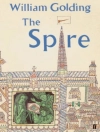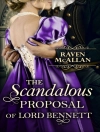In 'Paul Gerrard, the Cabin Boy, ’ William Henry Giles Kingston crafts an adventurous maritime tale that delves into the life of a young boy who embarks on a journey of self-discovery amid the perils of the sea. Kingston’s literary style is marked by vivid descriptions and strong character development, offering readers an immersive glimpse into the rigors of nautical life during the 19th century. The novel captures the themes of courage, friendship, and resilience, set against the backdrop of a fading age of exploration and burgeoning maritime power, thus resonating with the conventions of sea literature popular in the Victorian era. William Henry Giles Kingston, a prolific author of children’s literature and adventure novels, drew upon his own experiences in marine commerce to infuse authenticity into his writing. Growing up in a port city, Kingston’s fascination with the sea and its stories shaped his literary voice. His commitment to moral lessons and character-building narratives reflects the Victorian ethos, aiming to instill virtues in young readers while entertaining them with thrilling plots. This captivating tale is recommended for readers of all ages seeking adventure and moral fortitude. Kingston’s ability to engage with young audiences makes this book a perfect introduction to classic literature, promising both excitement and valuable life lessons that endure beyond its pages.
O autorze
William Henry Giles Kingston (1814-1880) was a prolific English writer of boys’ adventure novels, renowned for his stories of brave youths and their seafaring ventures. Often referred to as W.H.G. Kingston, he mastered the art of blending fact with fiction, which not only entertained a generation of young readers but also educated them about geography, history, and the world beyond their immediate environments. Among his numerous works, 'Paul Gerrard, the Cabin Boy’ stands as a fine exemplar of his literary style, combining maritime knowledge with coming-of-age themes that explore moral and ethical challenges. Kingston’s narratives were characterized by a vivid sense of realism, likely drawn from his own experiences at sea, having travelled extensively due to his family’s commercial interests. His work was admired for its attention to technical detail and its underpinning values of courage, perseverance, and honour. While Kingston’s style has been critiqued for its adherence to British imperialistic sentiment, it reflected the prevailing attitudes of his time. Notwithstanding, his contributions to juvenile literature have been recognized as significant for they not only shaped the genre of the adventure novel but also arguably influenced the moral and character development of many young minds in the late 19th century.












